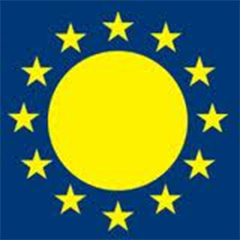Added focus on application and policy topics
Abstracts for conference contributions to be submitted until 28 February 2014
Munich, 16 January 2014 – While Photovoltaic (PV) Solar Energy is becoming a major electricity source on a global level, the 29th European Photovoltaic Solar Energy Conference and Exhibition (EU PVSEC 2014) further extends its focus to application- and policy-oriented topics.
The EU PVSEC 2014 will take place from 22 to 26 September 2014 at RAI Convention and Exhibition Centre in Amsterdam, the Netherlands. The five-day Conference is complemented by the three-day Exhibition, held from 23 to 25 October 2014.
By the time the PV community will meet in Amsterdam, PV generation capacity in the European Union will have surpassed the 2020 target of 84 GW installed. This highlights the need for new ambitious targets for 2030, a position also expressed by the vote of the European Parliament’s Environment and Energy Committees on 09 January 2014.
Worldwide photovoltaic electricity generation systems are attracting the lion’s share of renewable energy investment. Electricity from these systems could supply up to 700 TWh or close to 3% of worldwide electricity demand by 2020. Dr. Arnulf Jäger-Waldau, European Commission, DG JRC, and EU PVSEC Technical Programme Chairman: “This clearly shows that PV is on the way to become a major electricity source in the coming years. The political and economic discussion in the PV sector is now shifting from installed capacities to costs of electricity per kWh during the different times of the day. These costs are not only influenced by the available solar radiation, efficiency, performance, reliability and lifetime of the PV systems, but equally by their design, orientation, sizing and placing in the electricity infrastructure. Available auxiliary grid services, like voltage and frequency stabilisation, as well as local and central storage options add to the value of PV generated electricity.”
Jäger-Waldau continues: “The 29th EU PVSEC Conference tackles these challenges with the adaptation of the programme topics. This adaptation allows for an increased focus on reliability issues on module and on system level, as well as on aspects of grid integration and dispatchable electricity from PV systems. It includes the need for new materials and concepts in module design and manufacturing, in power electronics and for the use of PV as building material and in customer driven developments. The associated necessary changes in policy perception, legal frameworks and related regulations complete this topical extension.”
With these considerations, the EU PVSEC Conference programme 2014 will be structured along the following main subjects:
• New Materials and Concepts for Solar Cells and Modules
• Wafer-Based Silicon Solar Cells and Materials Technology
• Thin Film Solar Cells
• Solar Cells, Assemblies and Modules for Terrestrial Concentrator Systems and for Space Solar Generators
• Operations, Performance and Reliability of Photovoltaics
• PV Applications
• PV – A Major Electricity Source
The Call for Papers for the EU PVSEC 2014 is open. All PV professionals are encouraged to submit their abstracts until 28 February 2014 on www.photovoltaic-conference.com.
Background EU PVSEC
For many years, the European Photovoltaic Solar Energy Conference and Exhibition (EU PVSEC) has combined a renowned international scientific conference with a leading PV industry exhibition and trade fair. During 5 conference and 3 trade fair days, new products and technical innovations from all areas of photovoltaics and from all over the world are on show.
The EU PVSEC is supported by European and international organisations such as the European Commission, UNESCO – United Nations Educational, Scientific and Cultural Organisation, Natural Sciences Sector, WCRE – World Council for Renewable Energy, ESA – European Space Agency, EU PV TP – European Photovoltaic Technology Platform, ARE – Alliance for Rural Electrification, EPIA – the European Photovoltaic Industry Association, IPVEA – the International Photovoltaic Equipment Association, EPIC – European Photonics Industry Consortium, SASIA – Saudi Arabia Solar Industries Association, CABA – Continental Automated Buildings Association.
The Conference Programme is coordinated by the European Commission, DG Joint Research Centre.
For further information please visit: www.photovoltaic-conference.com / www.photovoltaic-exhibition.com



























